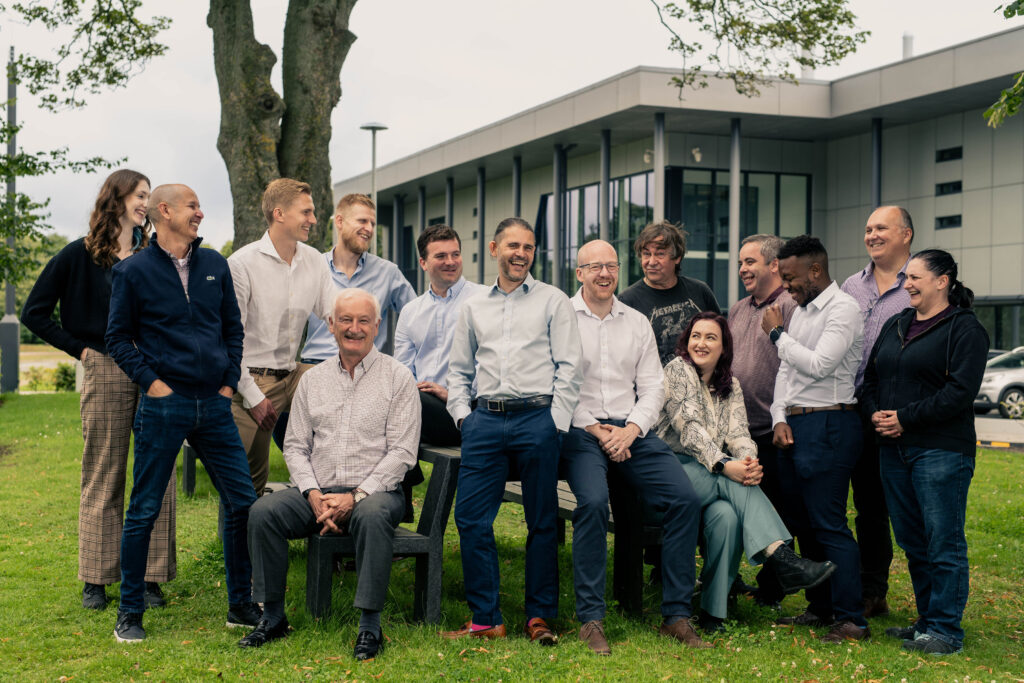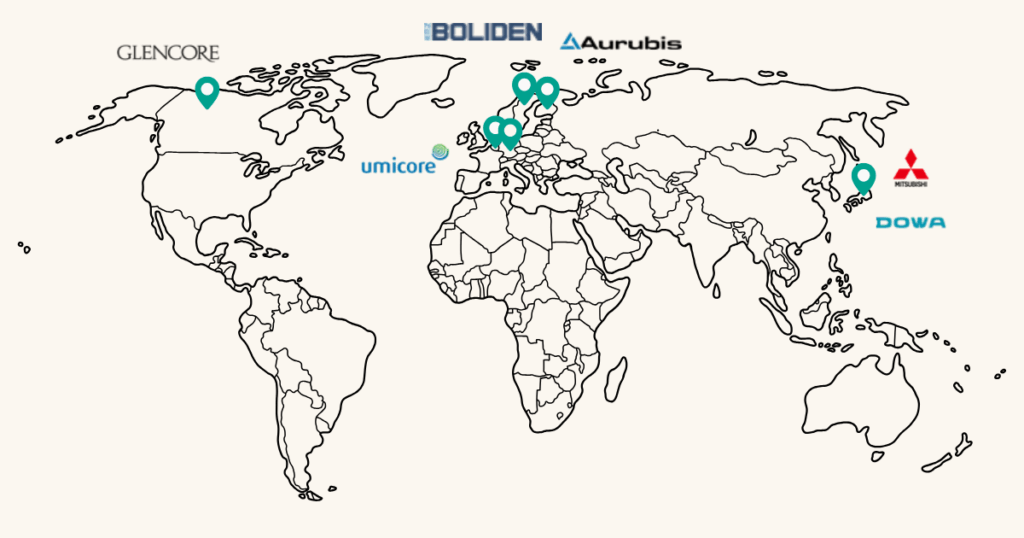Unlocking a smarter way to recycle e-waste
Electronic waste (e-waste) is one of the world’s fastest-growing economic and environmental challenges. But DEScycle’s novel approach to metal recycling technology has the potential to deliver a clean, scalable solution to this challenge, at a critical time. We’re excited to be backing the business, as it looks to bring this much-needed innovation to the industrial level.

E-waste is surging
In 2022, the world generated ~62 million tonnes of e-waste, equating to 7-8kg for every person on the planet — an increase of more than 80% since 2010. That number could hit 82 million tonnes by 2030.
Alongside the scale of the problem, the value is also staggering: the UN estimates that over $90 billion in materials (primarily metals like gold, copper, and silver) was embedded in e-waste in 2022, yet less than a quarter of that was recovered.
The growing adoption of compute-intensive applications, including AI and cloud services, is accelerating this trend. The top data centre owners purchase over $40 billion in hardware each year, with server boards being replaced every 3-5 years, and often containing 100-200x more gold per tonne than typical mined ore.
Existing ‘solutions’ are inefficient and insufficient
Increasing the proportion of e-waste that’s recycled, and recovering that value, is challenging. The recycling value chain involves multiple upstream and downstream steps.
 Typical e-waste recycling value chain
Typical e-waste recycling value chain
Today, processing is dominated by smelting: a high-temperature, capital-intensive, and highly centralised process. There are only a handful of smelters globally, and they’ve not been able to scale to keep up with the underserviced and growing e-waste recycling market.
Alternative metal recovery processes (such as hydrometallurgy and biometallurgy) do exist, but face challenges around toxicity, recovery rates, scalability, and cost.
 Known pyrometallurgical smelters of e-waste in the world: Canada, Belgium, Germany (2), Sweden, Finland, Japan (3)
Known pyrometallurgical smelters of e-waste in the world: Canada, Belgium, Germany (2), Sweden, Finland, Japan (3)
That’s where ‘DES’ comes in
The company is commercialising a novel approach using Deep Eutectic Solvents (DES) — a unique class of low-cost, low-toxicity chemicals that can dissolve precious metals at low temperatures. Discovered at the University of Leicester, DES offers a radically different pathway to recycle e-waste more selectively, efficiently, and sustainably.
Why we invested in DEScycle
In 2024, the business closed a £10.2 million Series A funding round, led by our Early Stage team, alongside co-lead Vorwerk Ventures. We chose to back DEScycle for several key reasons:
Technical strength
DEScycle’s chemistry consistently achieves 95–99% recovery rates for precious metals — outperforming both traditional and alternative methods, which tend to be limited to 90% recovery rates. It also works at low temperatures (<80°C) and avoids the use of hazardous acids or high pressures.
Scalability and economics
The DES process is energy-efficient, uses standard off-the-shelf equipment, and can be economically deployed at smaller, decentralised sites — unlocking localised recycling infrastructure that doesn’t rely on large-scale smelters. The DES chemicals can also be recovered and reused, further driving down costs.
Team expertise
The management team comprises a strong mix of commercial and technical skills. Notably, Co-Founder and CTO Dr. Rob Harris has worked on DES chemistry for over 20 years. He advanced the work of the research team that discovered DES solvents, focusing specifically on the development of economic and sustainable scaling of the DES process. The team is supported by an equally strong board, including experienced mining and chemicals industry leaders, such as Chair Ian Cockerill and Non-Executive Director Steve Dobson.
“DEScycle is poised to make a significant impact on metals recovery and sustainable e-waste management. We look forward to supporting DEScycle’s mission to replace outdated, inefficient technologies, delivering significant costs savings, increased performance, environmental impact, and transparency in the critical e-waste recycling sector.”
Rowan Bird
Investor at BGF
What’s next?
This is a moment of convergence: the volume and value of e-waste is surging, critical material supply chains are the subject of increased focus on resilience, regulatory pressure around sustainability is rising, and global recycling infrastructure is under strain. DEScycle’s technology, meanwhile, is moving out of the lab and into the real world.
“We’ve worked closely with BGF since they led our Series A. They’ve been incredible in helping us drive forward with our core milestones and planning for the future. We’re grateful for their support and are excited for our next phase of growth: commissioning a demo plant, before raising a Series B to scale into full commercial deployment.”
Leo Howden
CEO at DEScycle
Our investment will support the construction of a 5,000-tonne demo facility and the development of a larger commercial site through a joint venture with GAP Group, a leading UK e-waste recycling business.
“BGF stood out to us as an investor who really knows what it takes to succeed as a deep tech startup, and the nature of the capital structure aligns well with deep tech companies.”
Leo Howden
CEO at DEScycle
DEScycle’s approach has the potential to shift the economics — and geography — of e-waste recycling. We’re excited to support the team as they scale a cleaner, smarter solution to a global challenge.



